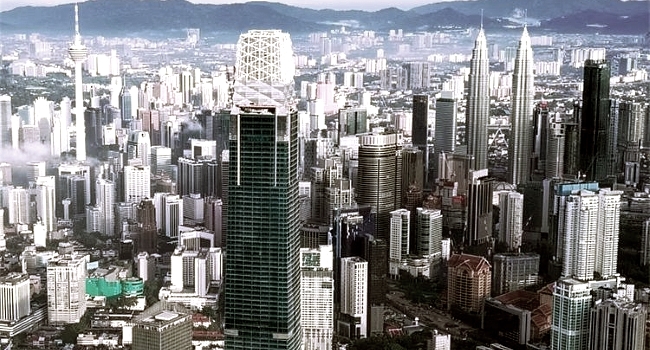Sin Chew Daily
Bank Negara has announced to further relax the Foreign Exchange Policy (FEP) with five major measures to strengthen the country's business conditions and our position in global supply chain in creating a conducive environment to lure foreign direct investments (FDIs).
It has been reported that we have lagged far behind our Asean neighbors in attracting FDIs while losing the critical strategic investment status.
Bank Negara's announcement aims to enhance the country's business efficiency from the technical perspectives. But to attract more foreign investments, there are a lot more we need to do.
The coronavirus has dealt a severe blow on the economic activities in Asean and the world, including Malaysia.
Statistics show that Malaysia's FDIs plummeted by a hefty 56% to US$3.4 billion in 2020. The reality is, our FDIs have been declining for three years in a row, as investors are turning to more attractive destinations elsewhere in the region. Rumors have it that many high tech investors have opted to relocate their regional bases to Indonesia, Singapore and even Vietnam, instead.
The situation of the coronavirus pandemic in Indonesia is a lot more serious than in Malaysia, but they somehow managed to draw US$18 billion of FDIs last year. It has been reported that the world's biggest automated vehicle producer Tesla as well as high-tech manufacturers such as Apple Computers have opted to set up their plants in Indonesia.
The pandemic is a global issue, but if we had set our sights far and wide in our investment policy with a relatively stable and business-friendly environment, we would have been able to mitigate the negative impact of the pandemic. Unfortunately we had not.
To reverse this situation, we will need to have clearer direction in our economic development as well as political stability in order to woo and retain FDIs.

International trade and industry senior minister Datuk Seri Azmin Ali said recently that his ministry would soon table a new investment policy bill to the cabinet to attract more quality investments here. He touched on two major points: we need to attract high quality investments and not rely on labor-intensive industry any more; and that agencies responsible for wooing foreign investors need to enhance coordination among themselves. These are the two things we must improve urgently.
Meanwhile, World Bank is of the view that Malaysia needs to reinspect and redraw its foreign investment policy in a bid to lure more quality investors while creating new job opportunities for the people. We must show the investors our investment vision, our comparative edge and opportunities vis-à-vis our neighbors.
While announcing the national economic recovery plan last year, prime minister Tan Sri Muhyiddin Yassin said that the government agreed to provide tax relief to foreign investors in a bid to attract more foreign investments, boost the investment volume and create more job opportunities for Malaysians.
That was a good start, but we must also put in place a policy favorable to the sustained operation of foreign investors here, including improving the existing business environment.
After the 11th Malaysia Plan, the next five years under the 12th Malaysia Plan will be of tremendous importance to us, because we can show potential investors our future development vision.
Countries worldwide are fiercely fighting for more foreign investments, and all relevant government agencies must step up mutual coordination, create a more business-friendly and sustainable investment environment, display strong sincerity in wooing foreign investments while assuring them their rights will not be affected even in a change of federal administration.
Additionally, we must also provide investors efficient follow-up services to ensure maximum long-term spinoff effects.
Political stability will have a major bearing on foreign investors' decisions whether to do business with this country. Apart from the discord among the many political parties here, various government agencies have so far been functioning rather normally. The prime minister and other cabinet ministers have made visits to China, Middle East, Japan and South Korea with an eye to woo more investors here. This shows that to a certain extent Malaysia is still an attractive destination to foreigners. What we need to do is to further reinforce our business environment and consolidate our position in global supply chain.
ADVERTISEMENT
ADVERTISEMENT


































